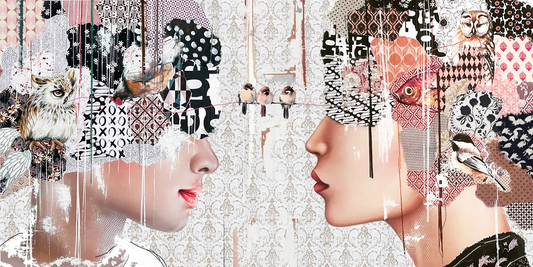Embarking on my journey of self-discovery, I’ve stumbled upon a profound realization — that, in essence, we know very little. As children, we were way closer to our original selves, more connected to the source of our existence, less influenced by the complexities of human thoughts and societal norms. The loss of this connection occurs as we are presented with ‘other’ truths from parents, schools, and society, truths that we unquestioningly accept as facts, shaping our beliefs. While not necessarily negative, these beliefs can become barriers, hindering our true selves, limiting our view on life and suppressing the unique talents we bring to this world.
We are all born into belief systems, deeply ingrained in us as we grow up. Are these beliefs real truths? The answer remains tricky. Do they serve as guiding principles in navigating your life? Yes, they do. Do they limit independent thinking and self-exploration? Probably. Ultimately, it boils down to how those beliefs make you feel. Do they bring joy and purpose or do they lead you away from your authentic self. In that case, it is time to reassess and discover what serves you better.
The challenge lies in recognizing the beliefs that act as roadblocks. Can you detach from yourself, helicopter your way out of a situation or thought, observe yourself from an objective standpoint? Is the path you’re on truly yours, or is it a result of what others have told you, resulting in a burden from the past? The struggle is same to a fish swimming in theocean, unaware of a befriended bird mentioning a beachside shack, where they sell amazing seaweed. The fish is oblivious, because all it knows is the surrounding of the water.
Being the observer allows you a precious moment between thought and the followed action, where you can intervene and see your behavior, recognizing patterns. It’s the observer’s realm, a space to decide on a different, higher-frequency thought or action, leading to a different reaction and outcome.
How do you become an observer of yourself? While there may be various paths, meditation emerges as a powerful and successful route. It’s a practice that helps you become more aware — aware of your thoughts and feelings, making you more alert amid the chaos of daily life. The goal isn’t to become a meditation expert; it’s about being more awake and aware of your behaviors. Personally, I meditate to create ‘non-thinking moments.’ When thoughts do pop up during meditation, I notice them. Some of those thoughts are great ideas or insights that I wouldn’t think about when actively searching for an answer. Next to that, I step into the role of an observer in the intricate dance between thought and stillness, a captivating mind game. The more I engage in this practice, the more it integrates into my daily routine, positively impacting how I show up in situations.
Meditation isn’t the sole path, taking solitary walks in nature, cycling, listening to music, or engaging with animals are also avenues toward self-connection. The journey to becoming an observer is multi-faceted, urging you to explore what resonates best with your essence.
As you dive into becoming the ultimate observer, don’t forget: life’s too short not to chuckle at the fish scratching its head or the bird’s idea of a seaweed culinary delight. In the world of self-discovery, a good laugh and sense of wonder might just be the secret ingredient to enlightenment. Let’s keep on shining that beautiful light.






